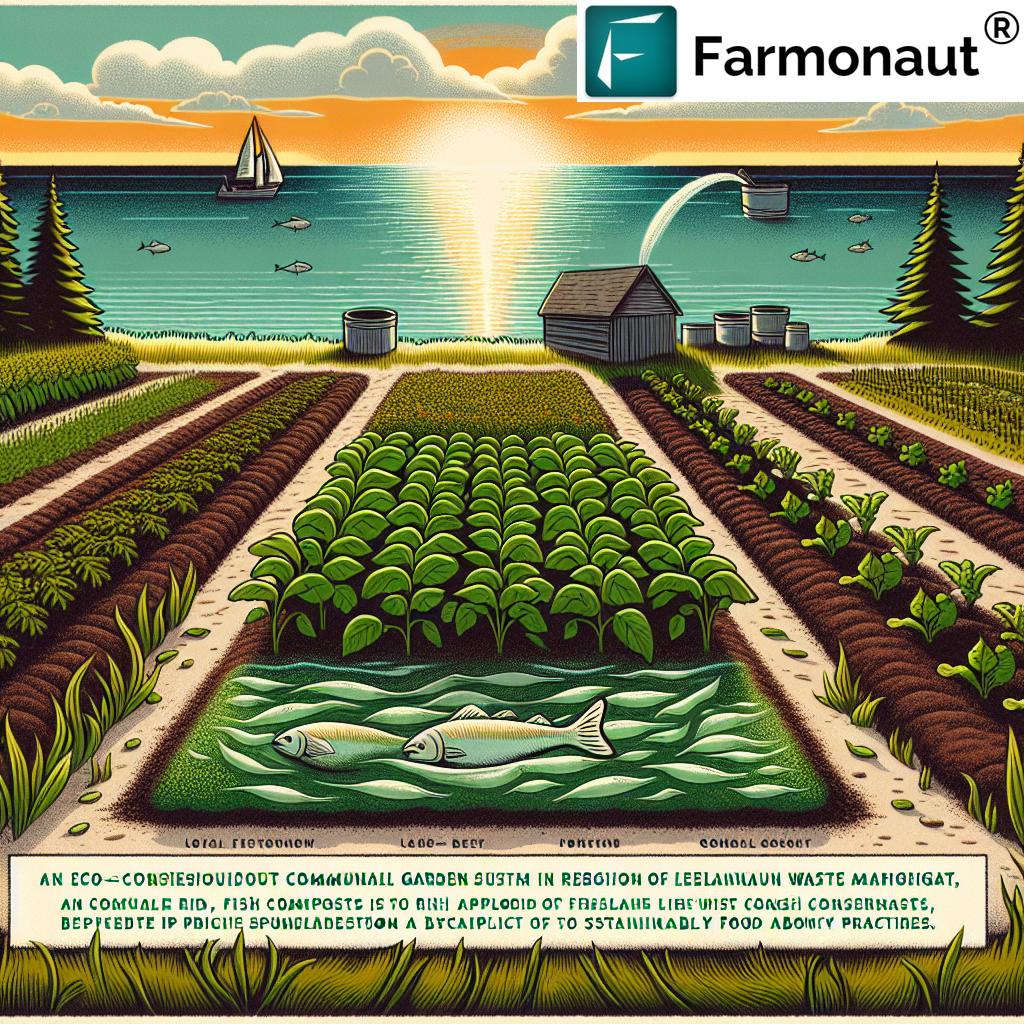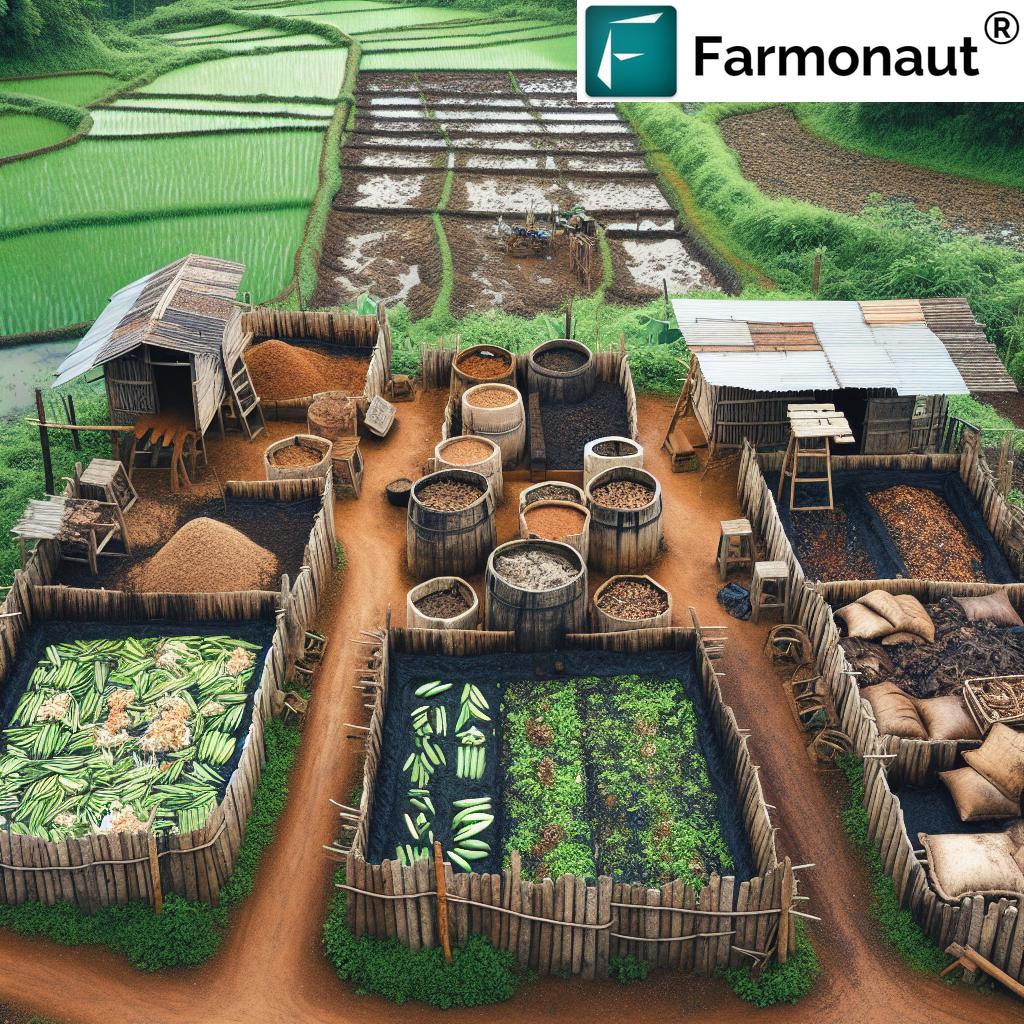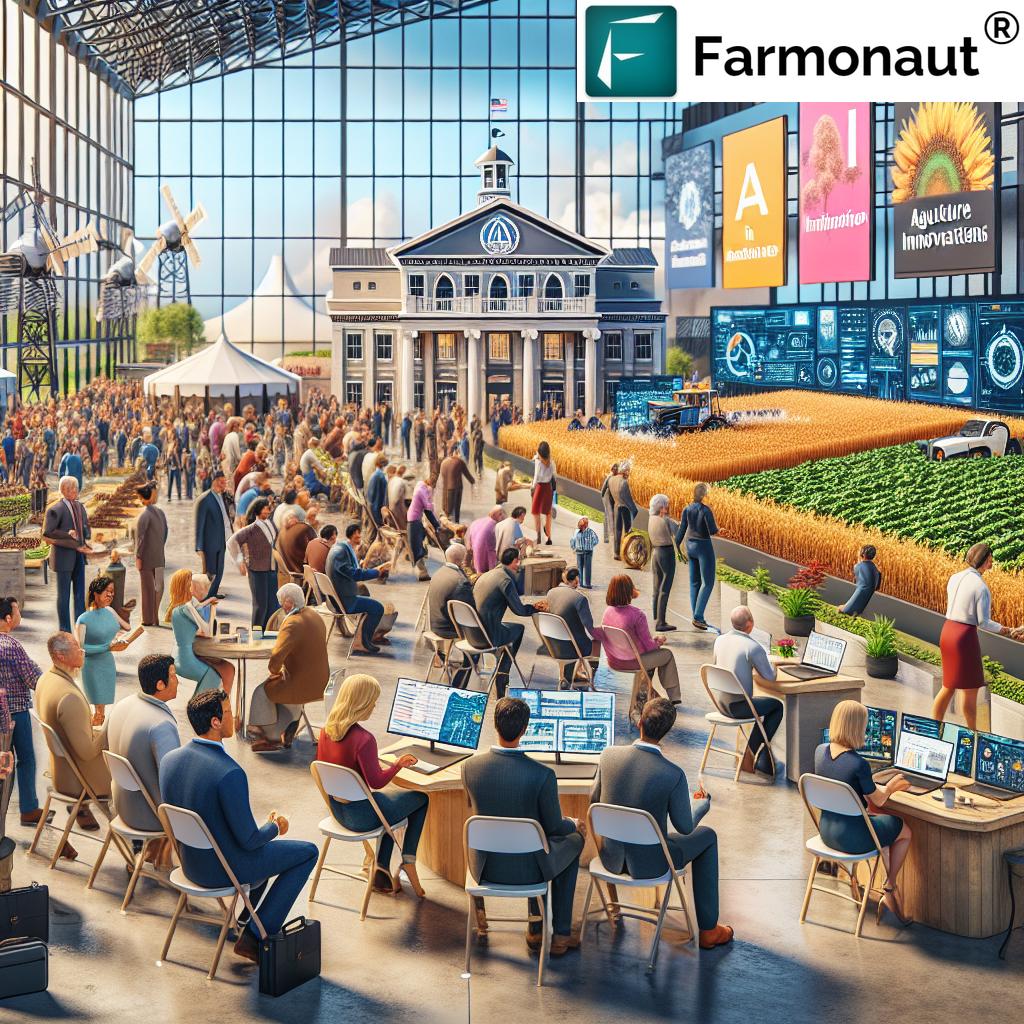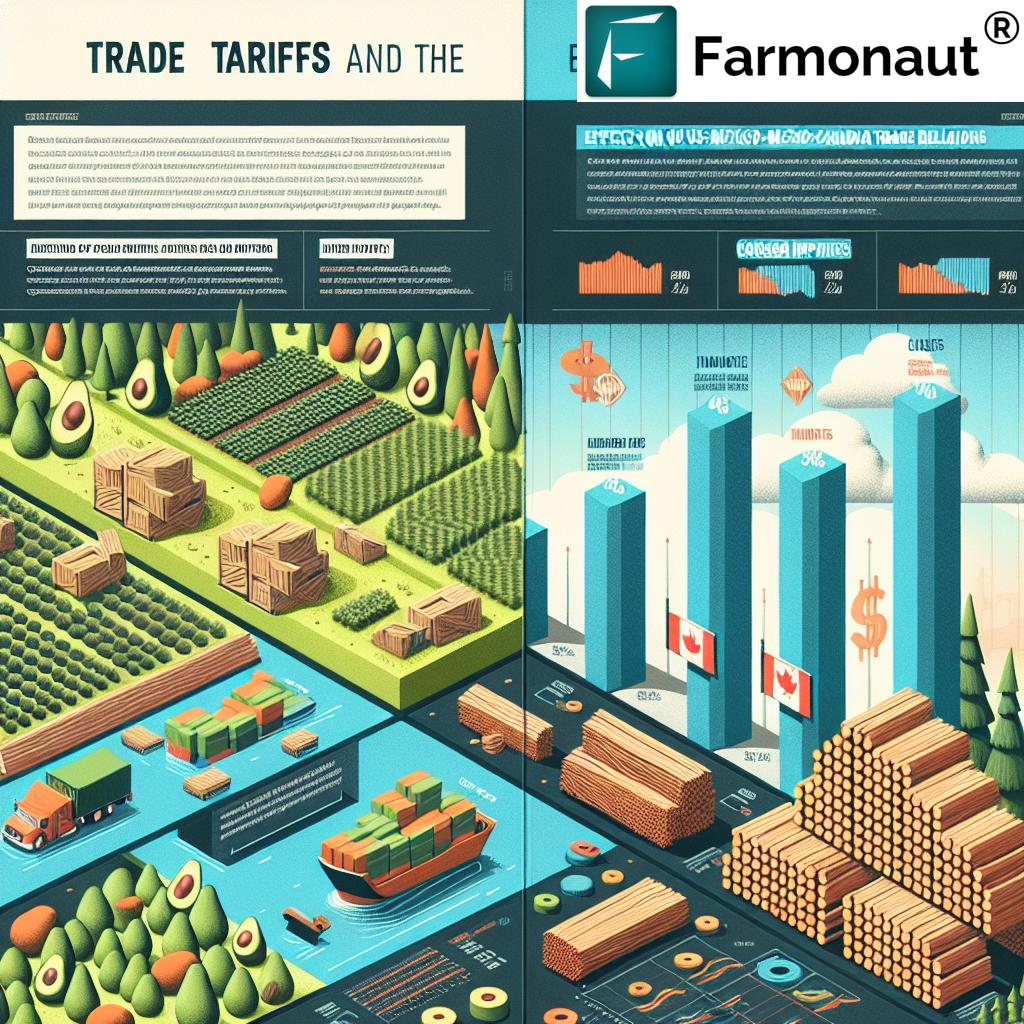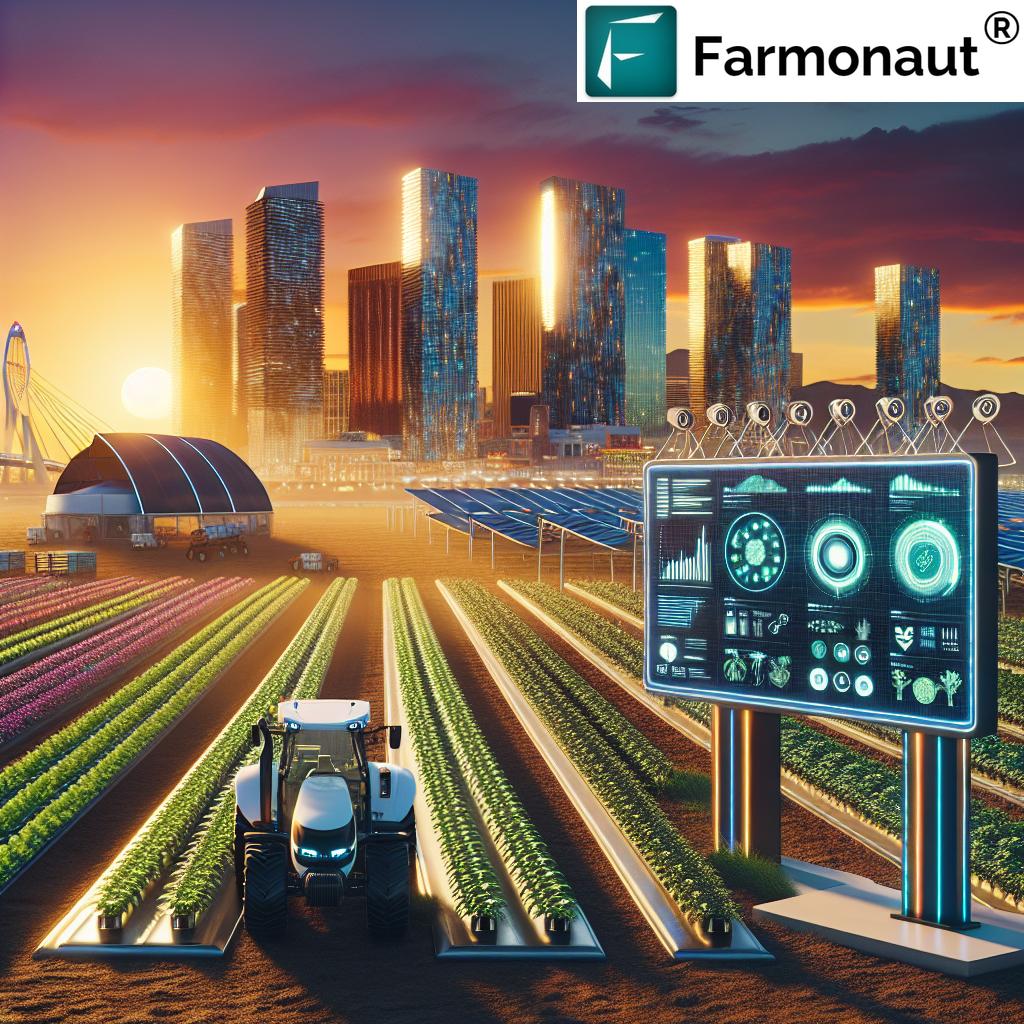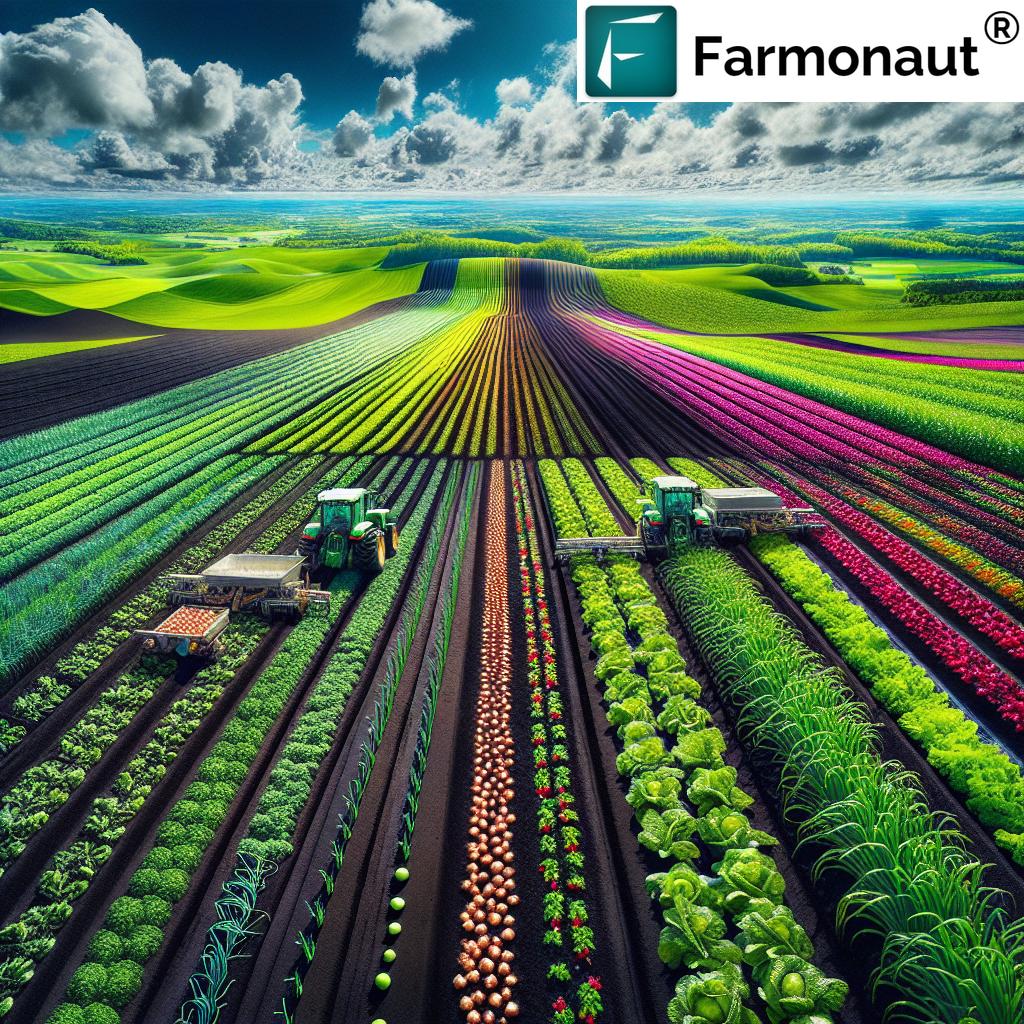Fish Waste Fertilizer: Transforming Leelanau’s Sustainability in 2022
Table of Contents
- Introduction: Fish Waste Fertilizer in Leelanau County
- Sustainability Trivia: The Power of Fish Waste in 2022
- The Great Lakes Fishery Sustainability Challenge
- Cultural and Tribal Traditions in Fish Waste Utilization
- How Sustainable Fish Waste Management Revolutionized Leelanau
- From Fish Waste to Fertilizer: The Process
- Innovative Fertilizer Practices Enhancing Environmental Sustainability
- Comparative Impact Table: Fish Waste vs Conventional Fertilizers
- Impact on Local Farms and Food Sovereignty Initiatives
- Mid-Blog Trivia: Tribal Sustainability Successes
- The Role of Policy, Funding, and Community Initiatives
- Environmental Sustainability Practices in Leelanau and Beyond
- Integrating Technology: Satellite Monitoring for Better Farming
- Farmonaut: Pioneering Eco-Friendly Farming Solutions
- The Future of Fish Waste Fertilizer and Lake Whitefish Conservation
- Farmonaut Subscriptions and Support
- FAQs – Fish Waste Fertilizer in Leelanau
- Conclusion: Sustainable Pathways for Leelanau and the Great Lakes
Introduction: Fish Waste Fertilizer in Leelanau County
In 2022, we witnessed an environmental transformation across Leelanau County, Michigan, as innovative fish waste fertilizer programs took root. Utilizing fish waste for agricultural purposes isn’t just a new trend—it’s a revival of tribal traditional farming methods that have shaped the regions surrounding the Great Lakes for generations. As members of the Grand Traverse Band of Ottawa and Chippewa Indians, our efforts are not just about recycling waste; they are about sustaining our lands, conserving critical fisheries like lake whitefish, and reclaiming food sovereignty—core to our community’s well-being and legacy.
This comprehensive blog post explores the development and impact of sustainable fish waste management, detailing how cultural practices, policy support, and technology like Farmonaut’s satellite solutions are combining to offer eco-friendly farming solutions for generations to come.
The story of fish waste fertilizer in Leelanau County begins with understanding how we, as a community, have always strived to balance resource use with respect for our natural surroundings. With the adoption of sustainable fish waste management in 2022, we have significantly improved Great Lakes fishery sustainability and promoted environmental sustainability practices across our fields and gardens. Let’s dive into how these practices are making a measurable, positive difference.
The Great Lakes Fishery Sustainability Challenge
The Great Lakes are a central resource for communities like ours in Leelanau County. For decades, overfishing, by-catch, and inefficient waste management practices threatened the long-term health of these waters and the livelihoods they support. The collapse of local fish markets, especially concerning lake whitefish stocks, caught our attention. In some parts of the lakes, stocks were declining faster than projected, leading to a regional challenge.
Traditionally, only the valuable fillets of fish were used, while the rest—heads, bones, viscera—were regularly sent to landfills or utilized as low-value products such as animal feed. The inefficiencies in current fish processing meant a vital opportunity was slipping by. We realized that if we could maximize the use of fish through composting fish waste and turning it into fertilizer, we would not only reduce landfill waste but also directly support both local agriculture and fishery sustainability efforts in the Great Lakes region.
This perspective was inspired by global practices, such as Iceland’s resourceful response to a fish market collapse. Instead of treating fish waste as a problem, they treated it as an opportunity—one we could learn from and adapt to our regional realities.
Cultural and Tribal Traditions in Fish Waste Utilization
Our use of fish waste fertilizer is not an accidental innovation, but a restoration of deep cultural and tribal traditions. Speaking with the elders in the Grand Traverse Band of Ottawa and Chippewa Indians, we have learned that fish waste management has always been integral to our way of life. Traditionally, families would use fish scraps in home gardens or communal plots to enrich the soil, creating a cyclical system where nothing was wasted.
Our tribal traditional farming methods were an eco-friendly farming solution long before modern practices. These methods used the entire fish, minimizing waste and returning nutrients to the earth. Today’s initiative to commercialize fish waste management in 2022, though supported by fresh funding and new technologies, remains deeply rooted in these ancient practices—practices built not just on survival, but on respect for the landscapes and ecosystems that sustain us.
By integrating these traditional techniques with current sustainability goals, we are able to enhance both crop yield and soil health, reduce reliance on chemical fertilizers, and promote food sovereignty initiatives that empower our communities.
How Sustainable Fish Waste Management Revolutionized Leelanau
Our sustainability revolution began in earnest at the start of 2022, when the Grand Traverse Band of Ottawa and Chippewa Indians received a pivotal grant from the Michigan Department of Environment, Great Lakes, and Energy (EGLE). This grant funded a commercial fish waste management program, transforming local approaches to fish waste and farming. No longer just a backyard tradition, fish waste fertilizer became a cornerstone of local food systems and agricultural innovation.
Instead of letting fish waste go unused, we collect it from fish processors and local markets, diverting it from landfills. These efforts, supported by various organizations and community leaders, have resulted in a significant reduction in overall waste and have helped establish a circular food system in Leelanau County that is both efficient and sustainable.
With declining whitefish stocks, these efforts also directly support lake whitefish conservation, helping us protect and replenish a species integral to our tribal traditions and regional economy.
How Does Fish Waste Fertilizer Work?
- Nutrient-Rich Compost: Fish waste contains nitrogen, phosphorus, potassium, and vital micronutrients that plants need for optimal growth.
- Improved Soil Health: Unlike synthetic fertilizers, fish-based compost encourages beneficial microbial activity and improves soil structure.
- Closed-Loop System: Using local fish waste creates a circular system—improving farms while reducing waste outputs from fisheries.
With these advantages, sustainable fish waste management has helped us enhance food production, support the local economy, and promote eco-friendly farming solutions that benefit both our people and our land.
From Fish Waste to Fertilizer: The Process
Let’s break down exactly how we turn fish waste into a highly effective, sustainable fertilizer for our Leelanau farms:
- Collection: Fish waste (heads, bones, viscera) is collected from processors and fish markets in Leelanau County and neighboring areas.
- Composting Fish Waste: The waste is blended with carbon-rich materials like sawdust, wood chips, or plant matter. This controls odor and creates optimal conditions for decomposition.
- Microbial Breakdown: Microorganisms break down the organic materials over several weeks, transforming fish waste into nutrient-rich compost.
- Curing and Stabilizing: The compost is cured for several more weeks to stabilize nutrients and kill off any pathogens—ensuring it’s safe for farm use.
- Application to Fields: The mature compost is applied to home gardens, communal plots, and commercial farm fields throughout Leelanau County and the Grand Traverse Band’s territory.
Using this method, we not only help local farms but also reduce pressure on landfills, actively supporting environmental sustainability practices in our region.
Innovative Fertilizer Practices Enhancing Environmental Sustainability
The shift to using fish waste fertilizer is more than just a reaction to market inefficiencies—it’s a proactive, scientific, and cultural step toward sustainability. Here’s how our innovative fertilizer practices are making an impact:
- Reduced Chemical Inputs: Fish waste is packed with natural nutrients, so we can decrease reliance on conventional synthetic fertilizers, reducing chemical runoff into Great Lakes waterways.
- Enhanced Soil Organic Matter: Fish-based compost increases organic content in soils, supporting resilient crops and healthier, more diverse microbial activity.
- Localized Circular Economy: By keeping both resource and value within Leelanau County, we support local jobs, stimulate economic development, and build a river-to-farm-to-table model.
Tools like Farmonaut’s Carbon Footprinting help us track and reduce agricultural emissions, further pushing our region’s environmental sustainability practices forward.
Comparative Impact Table: Fish Waste vs Conventional Fertilizers
To fully understand the value of sustainable fish waste management and fish waste fertilizer in Leelanau, let’s examine its impacts side by side with conventional fertilizers and traditional tribal methods:
| Fertilizer Type | Estimated Nitrogen Contribution (kg/acre) | Estimated Reduction in Chemical Runoff (%) | Impact on Soil Health | Estimated Crop Yield Improvement (%) | Contribution to Local Fishery Sustainability |
|---|---|---|---|---|---|
| Fish Waste Fertilizer | 45-65 | 40-60 | Improved (enhances organic matter & microbes) | 8–12 | High |
| Conventional Fertilizer | 60-80 | 10-25 | Neutral to Degraded (potential for over-fertilization) | 5–10 | Low |
| Tribal Traditional Methods | 35-55 | 35-50 | Improved (integrated with cultural soil building) | 6–11 | Medium to High |
Comparing fertilizer methods highlights fish waste’s exceptional ability to reduce fertilizer runoff, improve soil, and support Great Lakes fishery sustainability.
Impact on Local Farms and Food Sovereignty Initiatives
Our move to fish waste fertilizer directly empowers local farmers in Leelanau County and surrounding regions. Here’s what we’ve noticed:
- Lower Input Costs: Fish waste compost is affordable to produce locally, decreasing our reliance on imported or chemical-based fertilizers.
- Increased Food Sovereignty: By growing more food with locally sourced, sustainable inputs, we strengthen our independence and food security.
- Land Restoration: Farms that adopt these practices see steadily improved soil structure and increased yields—an outcome vital to both economic development and ecological health.
- Cultural Resurgence: The inclusion of tribal traditions and input from elders brings our communities closer together while rejuvenating traditional knowledge systems.
Our food sovereignty initiatives are also powered by digital tools. For example, the Farmonaut Product Traceability Solution brings added transparency, allowing everyone in our supply chain to see the positive impact of eco-friendly farming solutions on our plates and environment.
App Buttons for Farmonaut Mobile Apps
Empowering Community with Digital Tools
-
API Access: We encourage agribusinesses and developers to explore Farmonaut’s API for integrating satellite, weather, and crop analytics into local or regional platforms, driving data-driven farming for sustainability and growth.
Developer docs for Farmonaut’s Satellite & Weather API can help you leverage geospatial intelligence for efficient farm management and research. - Large Scale Farm Management: Coordinating fertilizer use, resource planning, and traceability becomes seamless for government bodies and large farms with Farmonaut’s Large Scale Farm Management. Precision farming for whole communities!
The Role of Policy, Funding, and Community Initiatives
Our journey toward sustainable fish waste management would not have been possible without forward-looking policies and investment in community initiatives. In 2022, the Michigan Department of Environment, Great Lakes, and Energy (EGLE) recognized the potential of composting fish waste and provided a crucial grant to help us scale up. This funding enabled us to move from household gardening traditions to a commercial program, allowing larger farms, communal plots, and even local government projects to benefit from the resulting fertilizer.
Community education and involvement are also at the core of our work. We organize workshops on composting, host forums with tribal elders, and encourage the next generation of farmers to take pride in supporting Great Lakes fishery sustainability. These food sovereignty initiatives connect us to our roots and inspire enduring stewardship of our resources.
Environmental Sustainability Practices in Leelanau and Beyond
Beyond the direct benefits to farmers and the fisheries, the ripple effects of sustainable fish waste management reach throughout the entire Great Lakes region.
- Reducing Landfill Burden: By diverting thousands of pounds of fish waste each year, we significantly lessen local landfill strain and environmental pollution.
- Waterway Restoration: Reducing chemical fertilizer use minimizes runoff, improving water quality in streams, rivers, and Lakes Michigan and Huron.
- Community Resilience: A robust food economy built on local, eco-friendly farming solutions creates jobs, boosts food security, and underpins our region’s development goals.
We recognize that integrating sustainable practices with precision agriculture is the way forward, and Farmonaut’s digital infrastructure, such as satellite-based crop health monitoring, carbon tracking, and product traceability, supports this vision—empowering both small growers and large-scale producers to adopt best-in-class environmental sustainability practices.
Integrating Technology: Satellite Monitoring for Better Farming
As sustainable fish waste management expands across Leelanau, technology is playing an ever-greater role in amplifying its impact. Farmonaut, as a leader in agri-technology, enables us to:
- Monitor Crop Health: Satellite imagery provides color-indexed, real-time reports on NDVI, soil moisture, and vegetation health for accurate, timely interventions—ensuring our fish waste fertilizer is optimally used throughout the growing season.
- Implement AI-Based Advisory: We’re able to make better fertilizer recommendations, track disease, and respond quickly to in-field issues through Farmonaut’s Jeevn AI advisory system. This supports our goal of sustainable, data-driven food production.
- Track Environmental Impact: Automated carbon footprinting helps us validate our sustainability claims, report metrics for compliance, and set new benchmarks for eco-friendly farming solutions in the region.
These digital services work hand in hand with our knowledge of tribal traditional farming methods, allowing us to honor our customs while pursuing the most advanced environmental sustainability practices.
For agribusinesses seeking to organize and optimize their operations, Farmonaut’s Fleet Management Tools offer streamlined monitoring and resource allocation—keeping vehicles, inputs, and labor coordinated for maximum efficiency.
Similarly, banks, insurance agencies, and co-ops benefit from Farmonaut’s Crop Loan & Insurance Solutions, which use satellite-based data to verify claims and support community growth. These tools are critical for scaling food sovereignty initiatives and ensuring sustainable economic development across Leelanau and beyond.
Farmonaut: Pioneering Eco-Friendly Farming Solutions
To make the most of innovative fertilizer practices, it’s essential to have the right tools to monitor impact, improve efficiency, and validate outcomes. Farmonaut is at the forefront of this digital agricultural revolution. Its satellite-based platform is accessible by individual farmers, large agribusinesses, co-ops, and even government agencies, making high-tech, eco-friendly farming solutions attainable for all.
- Satellite Crop Health Monitoring: All Leelanau growers can measure the effects of fish waste fertilizer and catch nutrient deficiencies early for higher, predictable yields.
- AI-Driven Advisories: Receive real-time, tailored recommendations for best soil and crop management practices—boosting efficiency while supporting environmental sustainability.
- Blockchain Traceability: Farm-to-fork transparency is now possible, as every step in our food’s journey can be securely logged—amplifying the outcomes of food sovereignty initiatives and strengthening consumer trust.
These eco-friendly farming solutions complement and elevate our traditional knowledge, accelerating the growth of local, sustainable food systems in Leelanau and the wider Great Lakes region.
The Future of Fish Waste Fertilizer and Lake Whitefish Conservation
Looking ahead, we see tremendous potential in expanding sustainable fish waste management across more counties throughout Michigan. Our hope is for more tribal and non-tribal communities alike to adopt composting fish waste as a core agricultural strategy—not just for soils and crops, but for the entire environmental health of Lake Michigan and its fisheries.
- Lake Whitefish Conservation: Every pound of fish waste composted instead of discarded eases pressure on local fish populations by closing resource cycles and promoting responsible fisheries management.
- Scalable, Regional Models: Our framework proves that combining traditional tribal methods, scientific innovation, and technology can create sustainable, scalable, and profitable systems.
Great Lakes fishery sustainability, reduced chemical inputs, and community resilience are no longer future goals—they are present-day realities, thanks to fish waste fertilizer and the relentless dedication of the Grand Traverse Band of Ottawa and Chippewa Indians and other community members.
Farmonaut Subscriptions and Support
To help all farmers participate in the new age of environmentally friendly and data-driven agriculture, Farmonaut offers flexible subscription options—ranging from individual support for family farms to enterprise features for large operations. Access to real-time data, blockchain security, and precision input management is vital for rural sustainability.
Whether you’re a legacy farmer, a tribal garden coordinator, or a new-age agribusiness, there’s a Farmonaut solution that fits your sustainability mission and budget.
FAQs – Fish Waste Fertilizer in Leelanau
What makes fish waste fertilizer more sustainable than chemical fertilizers?
Fish waste fertilizer recycles natural nutrients otherwise destined for landfill and provides a slower nutrient release than chemical fertilizers, fostering long-term soil health, reducing chemical runoff into our lakes, and supporting Great Lakes fishery sustainability.
How do tribal traditional farming methods influence current practices?
Our tribal traditional farming methods prioritize closed-loop systems, minimize waste, and enhance environmental health based on generations of ecological knowledge—a foundation that modern composting fish waste programs are built upon.
How is fish waste collected and processed for use as fertilizer?
Fish waste is gathered from local processors and markets, blended with plant matter, composted for several weeks, then stabilized and cured into a nutrient-rich product ready for home gardens, communal plots, and commercial farms.
What role does Farmonaut play in supporting eco-friendly farming solutions?
Farmonaut provides satellite-based monitoring, AI advisory for best practices, traceability, and carbon footprinting—making eco-friendly farming solutions accessible, affordable, and verifiable for every grower in Leelanau.
What’s the link between fish waste fertilizer and food sovereignty?
By replacing imported or chemical fertilizers with local, recycled fish waste, we boost self-reliance, uphold our food sovereignty initiatives, and promote economic and cultural empowerment in our communities.
Where can I access Farmonaut’s services and apps?
You can start using Farmonaut on web browser, Android, and iOS. Try the web app today or download our Android app and iOS app for field-ready decision support.
Conclusion: Sustainable Pathways for Leelanau and the Great Lakes
As we reflect on Leelanau County’s bold steps in 2022, we are reminded that genuine sustainability comes from respecting tradition, embracing innovation, and supporting one another as stewards of the land and water. The adoption of fish waste fertilizer—backed by tribal traditional farming methods, advanced technology, and collaborative food sovereignty initiatives—demonstrates that the path to eco-friendly, prosperous farms lies in maximizing every resource with wisdom and care.
Our journey has only just begun. With the ongoing support of data-driven tools, committed farmers, and resilient tribal leadership, we are confident that Leelanau (and communities like ours across the Great Lakes) will lead the way in environmental sustainability practices for generations.
Learn more about precision agriculture, eco-friendly farming, and sustainable development on Farmonaut—empowering every Leelanau farmer, today and tomorrow.


